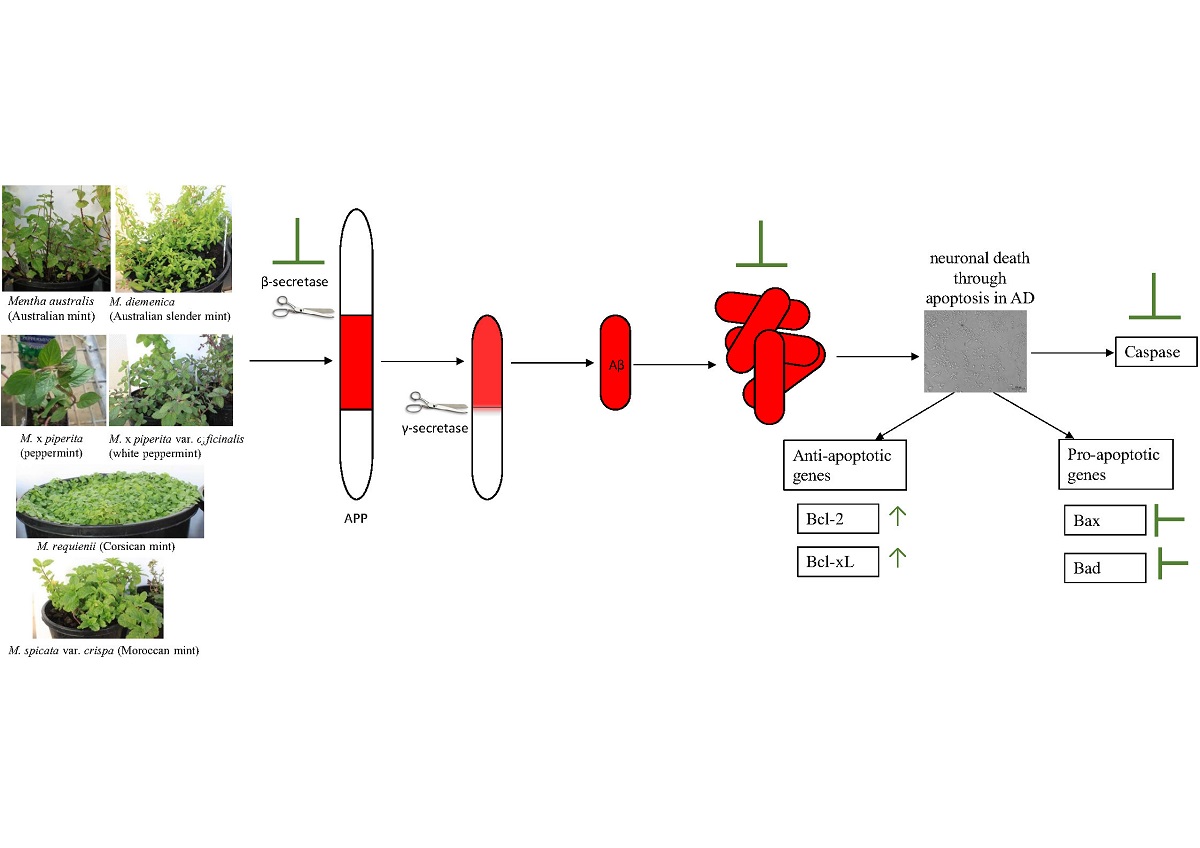Alzheimer’s disease (AD) is a progressive neurodegenerative disorder that develops as a consequence of different factors such as oxidative stress and accumulation of the protein amyloid β (Aβ) in the brain, resulting in apoptosis of neuronal cells. The search for a treatment for this disorder is essential as current medications are limited to alleviating symptoms and palliative effects. The aim of this study is to investigate the effects of mint extracts on selected mechanisms implicated in the development of AD. To enable a thorough investigation of mechanisms, including effects on -secretase (the enzyme the leads to the formation of A), on Aβ aggregation, and on oxidative stress and apoptosis pathways, a neuronal cell model, SH-SY5Y cells was selected. Six Mentha taxa were investigated for their in vitro β-secretase (BACE) and Aβ-aggregation inhibition activities. Also, their neuroprotective effects on H2O2-induced oxidative stress and apoptosis in SH-SY5Y cells were evaluated through caspase activity. Real-time PCR and Western blot analysis were carried out for the two most promising extracts to determine their effects on signalling pathways in SH-SY5Y cells. All mint extracts had strong BACE inhibition activity. M. requienii extracts showed excellent inhibition of Aβ-aggregation, while other extracts showed moderate inhibition. M. diemenica and M. requienii extracts lowered caspase activity. Exposure of SH-SY5Y cells to M. diemenica extracts resulted in a decrease in the expression of pro-apoptotic protein, Bax, and an elevation in the anti-apoptotic protein, Bcl-xL, potentially mediated by down-regulation of ASK1-JNK pathway. These results indicate that mint extracts could prevent the formation of Aβ and also could prevent their aggregation if they had already formed. M. diemenica and M. requienii extracts have potential to suppress apoptosis at the cellular level. Hence, mint extracts could provide a source of efficacious compounds for a therapeutic approach for AD.

